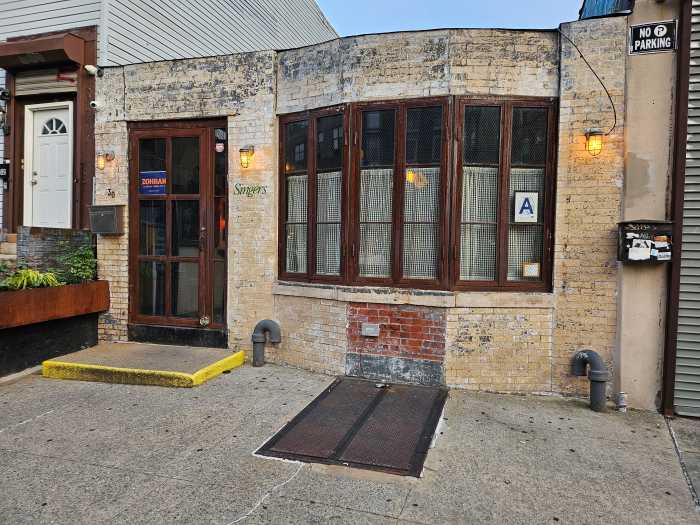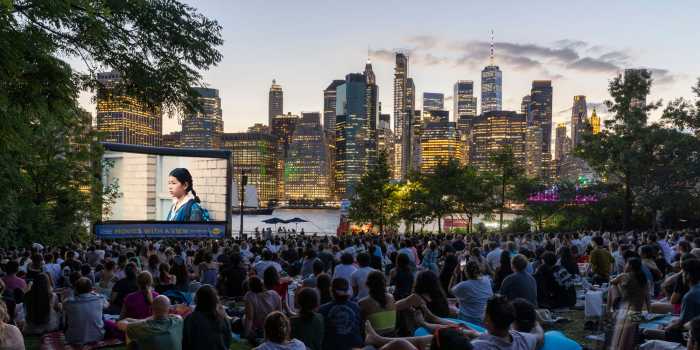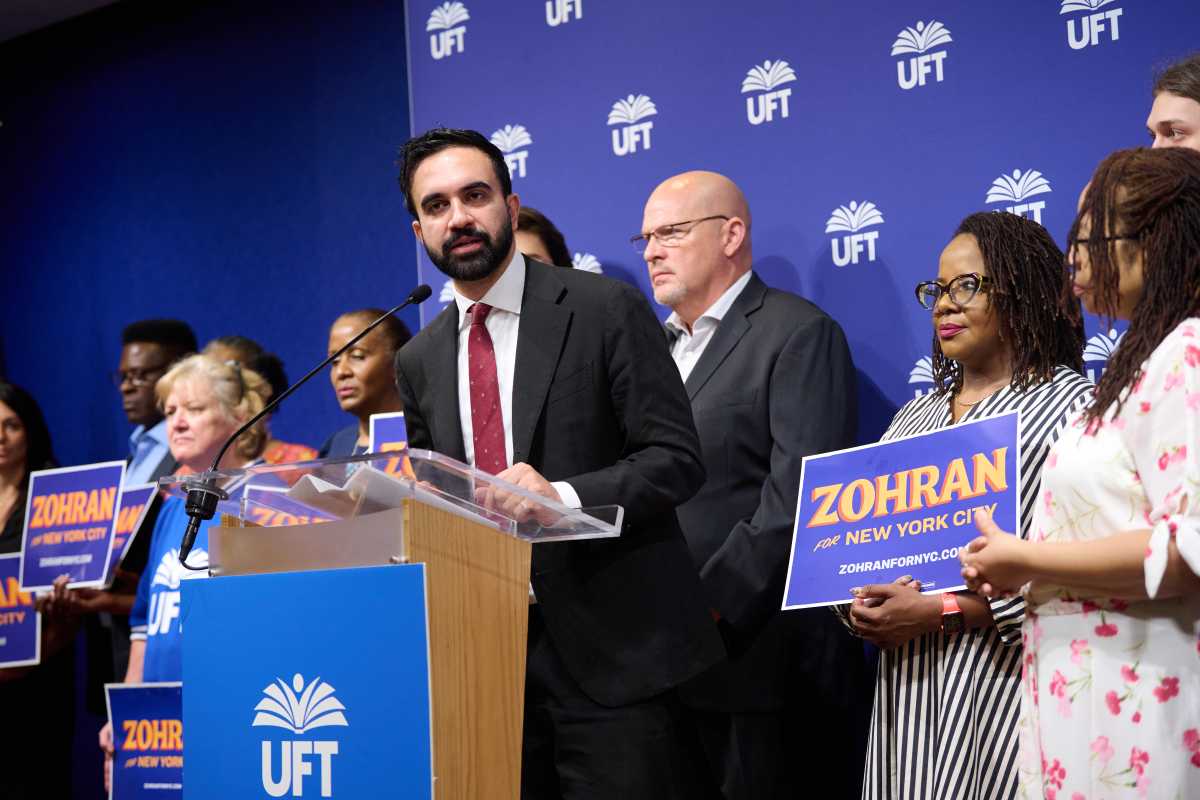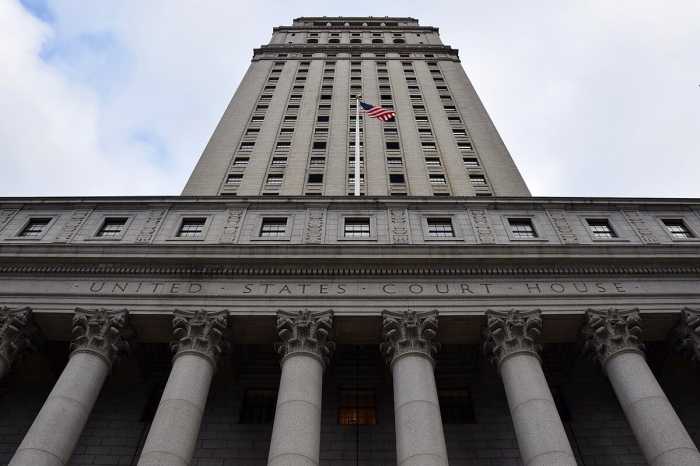By a fortunate quirk of scheduling – helped, of course, by
the revamping of the Brooklyn Philharmonic’s season – Russian
composer Dimitri Shostakovich is front and center in the borough’s
musical spring.
Following in the footsteps of Robert Spano and his orchestra’s
stirring rendition of Shostakovich’s powerful Symphony No. 10
at the Brooklyn Academy of Music is a tall order. If anybody
is up to the task, it’s Roumi Petrova, violist with the Forte
String Quartet and faculty member at the Brooklyn Conservatory
of Music.
Petrova and fellow Conservatory music teacher and cellist
Kalin Ivanov, along with their Forte cohorts, violinists Michael
Kuchuk and Oleksandr Abayevs, will be joined by pianist Marina
Rogozhyna for an all-Shostakovich recital on Sunday at the Conservatory
in Park Slope, part of its ongoing "Faculty Showcase"
series.
Founded by four postgraduate students in Bulgaria in 1990,
the Forte String Quartet now retains half of its original members
– Petrova and Ivanov, who in 1999 were joined in New York by
violinists Kuchuk and Abayevs. Ivanov has been on the Conservatory
faculty since 1998; Petrova joined the following year.
Putting together an all-Shostakovich program is gutsy if only
because of the possibility for a lengthy and somber afternoon.
Shostakovich (1906-1975) was one composer who always wrote from
the heart. If his honesty and straightforwardness occasionally
led to awkwardness – as in his several compositions that "praised"
Stalin and Russia after the composer received veiled threats
that his music was not patriotic enough – it also gave his music
an integrity far above most of his contemporaries.
To be sure, living through such extremely volatile times –
both politically and personally – forced Shostakovich to write
as he did. And his chamber music, on which this showcase program
focuses, is perhaps the most shattering of all his works: never
again would a composer dive so deeply and unhesitatingly into
his own gaping emotional wounds to create such serious, mature
and unforgettable music.
No one should be scared off by this portrait of nearly unrelenting
dourness. On the contrary, more often than not, Shostakovich’s
peerless craftsmanship comes to the fore and his music can be
heard, even enjoyed, as itself, not as merely the aural diary
of a man who lived through the last century’s worst times.
Indeed, the very fact that the Emerson String Quartet’s masterly
achievement, a Deutsche Grammophon recording of the complete
string quartets of Shostakovich (15 in all on five CDs), won
a Grammy this year gives hope that such music, no matter its
extramusical baggage, will endure because of its sheer quality.
One of those quartets is included in the program in this edition
of "Faculty Showcase," the Eighth Quartet, Op. 110.
Written in 1960, it is one of the most painfully personal in
all the composer’s output (which, considering that output, gives
this quartet an anguish nearly unparalleled in music history).
Dedicated to the "memory of victims of fascism and war,"
this heart-wrenching music came to life when Shostakovich visited
the ruins of the once-beautiful German city of Dresden to get
ideas for a film score. But there was much upheaval in his home
life, too: he divorced his second wife and controversially joined
the Communist Party.
The tremendous popularity of this score – it’s become the
most played of all his quartets – belies its existence as a sort-of
suicide note by a man at the end of his tether. (He didn’t do
it.) Shostakovich himself said, "One could write on the
frontispiece, ’Dedicated to the author of this quartet.’"
The Piano Quintet in G minor, Op. 57, was equally revelatory.
The year 1940 was a tense one in Russia; war had already broken
out in Europe and Hitler was poised to invade the motherland.
Shostakovich, who had already had his share of "disciplinary"
missives from Stalin concerning his music, now poured heart and
soul into this quintet in order to purge demons and, theoretically
at least, escape the censorious wrath that much of his orchestral
music fell prey to. That the Piano Quintet ends on a note of
wry, high humor doesn’t erase its dark undercurrents.
After all the heft of the quartet and quintet, the Viola Sonata
seems chosen as much so Petrova could play a piece for her instrument
as to further underscore Shostakovich as a musician. Either way,
this "Faculty Showcase" program should do just that.
The "Faculty Showcase" featuring violist Roumi
Petrova is March 11 at 3 pm at the Brooklyn Conservatory of Music
(58 Seventh Ave. at Lincoln Place). Tickets, available at the
door, are $5. For information, call (718) 622-3300.
The next "Faculty Showcase" concert is April 28 at
8 pm, when trombonist Gregory Erickson performs a program of
classical and percussion music.

























